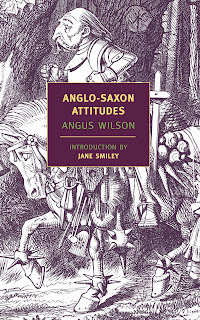Thanks to an unexpected, unusual, but much appreciated lull in my workload, I read more books in March than I’ve ever read in one month as an adult. I now have a glimpse of what retirement might look like and am looking forward to it all the more!
See any here you’ve read and enjoyed, or want to?
Phineas Finn by Anthony Trollope, the second book in the the Palliser Series, which I am reading this year as part of a group read on Instagram.
Fay Weldon’s Love & Inheritance Trilogy: Habits of the House, Long Live the King, and The New Countess. The novels are set in London society at the turn of the 20th Century. They have strong Upstairs, Downstairs themes, which makes sense because Weldon wrote several episodes of Upstairs, Downstairs, including the first, prize-winning episode. She published these three books in 2012 and 2013, shortly after Downton Abbey captured the collective imagination, and there are many similarities! The trilogy was thoroughly entertaining, if light fare compared to Trollope.
An Omelette and a Glass of Wine by Elizabeth David, Britain's foremost food writer. This is a collection of food, restaurant, and travel essays, many from newspaper columns and magazine assignments.
My Kind of Place by Susan Orlean is a collection of travel-inspired essays. This is one of my #TBR24in24 books. It reminded me that Orlean used to live here in Portland where she wrote for our weekly alternative paper, Willamette Week.
The Way We Lived Then: Recollections of a Well-Known Name Dropper by Dominick Dunne. Before he reinvented himself as a novelist, Dunne was a television producer in Hollywood. This memoir, chock-o-block with personal snapshots of celebrity society in Hollywood in the 1950s and ‘60s, would be insufferable without Dunne's charm and frank admission of how badly he messed up his life later on.
The Old Patagonian Express: By Train Through the Americas by Paul Theroux, about his 1978 train journey from Boston, through North and South America, to Patagonia, another TBR 24 in '24 read.
The Curmudgeon’s Guide to Getting Ahead: Dos and Don’ts of Right Behavior, Tough Thinking, Clear Writing, and Living a Good Life by Charles Murray, a common sense guide to adulthood, which I wrote about here.
Menagerie Manor by Gerald Durrell, about starting a private zoo on Jersey, was the first first book by him I've read, but won’t be my last. Another TBR 23 in ’24 read. I'm going to pass this on to my daughter-in-law who is a vet at the National Zoo in Washington, D.C. because I think she will find interesting the comparison between a private zoo in the 1960s and '70s and a public zoo now.
I’ll Never be Young Again by Daphne du Maurier. This is du Maurier's second novel and I found it tough going. I'm in a Du Maurier Deep Dive reading group on Instagram and we are down to the last few books. This one is my least favorite DDM book so far. The main character is unattractively immature and I wanted nothing to do with him. If I weren't a du Maurier completist, I would not have finished it.
The Vintage Caper by Peter Mayle, a wine-themed cozy mystery set in Marseille. Loved it.
Vera Wong’s Unsolicited Advice for Murderers by Jesse Q. Sutanto was my book club pick for March. I am pleased to report that everyone in the group enjoyed it, which is unusual for book club!
Songbook by Nick Hornby, the only author I like enough to read a 20+ year old book about pop music.
The Horse’s Mouth by Joyce Cary. I read this because it is on Anthony Burgess's list of Top 99 Novels in English, one of my favorite lists for reading inspiration. It might be a classic about the life of an artist, but there is a reason you don’t see it around much anymore. The protagonist, artist Gully Jimson, is highly unlikeable, which made the book a slog for me. Oddly, by one of those reading coincidences, in The Old Patagonian Express, Paul Theroux mentions in passing and without context that some wall art he sees from the train window would make Gully Jimson proud. I am happy to cross this one off my TBR 24 in ’24 list.
Slightly Foxed, Issue 81, Spring 2024. I like to include these in my lists of books read so I can keep track of which ones I've finished.
His Last Bow by Arthur Conan Doyle, which brings me to the end of the Sherlock Holmes series. Several years ago, I found a boxed set at an estate sale and jumped right on it, intending to read (and reread) them straight through. But my enthusiasm waned and it's taken me almost 14 years to get through all of them.
NOT PICTURED (READ WITH MY EARS)
Foster by Claire Keegan, my other book club’s latest pick. This is an excellent novella about a young girl in Ireland sent to live with foster parents. We don't meet until April, but I am sure the book will be a popular one.
A Song for the Dark Times by Ian Rankin. I have been working my way steadily through his John Rebus books, making a concerted effort the past year and a half. This is book 23 of 24 (so far), so I am close to wrapping up the series. I love the books, but it's a long series!
What were your March reading highlights?













